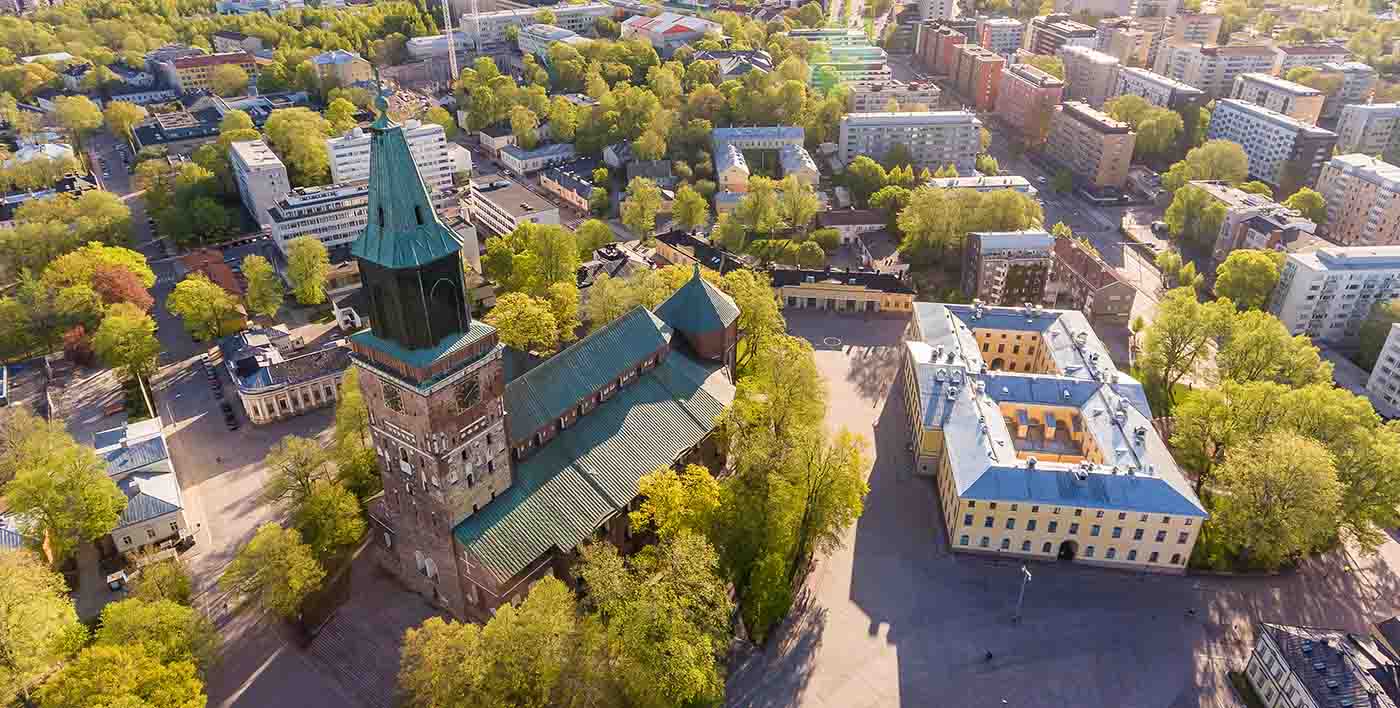Keynote lectures
Thursday, 31 October 2024 at 10.15-11.30
Professor Sari Katajala-Peltomaa (University of Turku)
Pilgrimages as ritual and emotional space in later medieval Europe
This talk approaches pilgrimages from the perspective of lived religion. Its main focus will be on pilgrimages as a counter gift for a saint after a miracle. By comparing depositions in late medieval canonization processes from Southern and Northern Europe, regional characteristics in ritual practices and emotional elements will be analysed. The rich and emotional ritual language in the Italian urban shrines will be juxtaposed to longer travelling distances and more hierarchical and restricted practices in the North.
Professor Sari Katajala-Peltomaa is a cultural and social historian specializing in medieval Europe, with a particular focus on lived religion, gender, family, and childhood. She is an expert on pilgrimage studies, exploring how these rituals were practiced and understood in the late medieval period. Her work delves into the complexities of lay religiosity, examining how ordinary people engaged with religious practices and interacted with saints. She is the author of Demonic Possession and Lived Religion in Later medieval Europe (Oxford: Oxford University Press, 2020) and Gender, Miracles and Daily Life: The Evidence of Fourteenth-Century Canonization Processes (2009), and co-author of Lived Religion and Gender in Medieval and Early Modern Europe (2021). See: https://www.utu.fi/en/people/sari-katajala-peltomaa
Friday, 1 November 2024 at 11.00-12.00
Professor Avril Maddrell (University of Reading)
Feminist perspectives on pilgrimage, environment, experience and meanings
This lecture explores themes of pilgrimage, environment, experience and meanings through a feminist-geographical lens and associated methodologies. The ways in which the social construction of gender has had significant impact on the institutional organisation, regulation, power structures, practices and performances of organised religion are well-rehearsed. Many aspects of gendered relations in religious-pilgrimage contexts have been highlighted and their uneven power relations critiqued by feminist scholars (e.g. Jansen and Notermans 2012). Moreover, attention to the mutual significance of gender and religion has prompted fruitful study of women’s everyday religious experience (Ahmed 1999) in relation to different masculinities (Hopkins 2004) and femininities (Gemzöe 2005). This includes everyday spirituality (MacKian 2012), Queer spirituality (Browne et al 2010), and the significance of often gendered alternative spiritual beliefs-practices such as belief in angels and Goddess worship (Rountree 2002; Utriainen 2016). At the heart of a number of these conceptual shifts there has been a focus on the ways in which beliefs intersect with and shape lived and embodied experience, often expressed through practice and performance – themes which are central to this lecture.
Set in the context of wider work on gender and pilgrimage and sacred mobilities (Maddrell et al 2015), the lecture focuses on case study analysis of the concept and practice of contemporary pilgrimage in relation to Ecumenical (but largely Protestant-led) Christian faith walks in the Isle of Man and the establishment of faith heritage trails and resources through the ‘Pilgrimage Isle of Man’ initiative. These linked twenty first century local initiatives offer insights to polysemic embodied-emotional-affective-religious-spiritual experience of Celtic faith heritage. They highlight co-present gendered patterns and a blurring of gendered roles and hierarchies; attention to the intersections of gender-nature-landscape is also indicative of the potential for pilgrimage as a vehicle for eco-spirituality and conservation advocacy. The positionality of the researcher and the role of academics as mediators between faith groups and the secular heritage sector in the context of pilgrimage is also discussed.
Professor Avril Maddrell is a social and cultural geographer interested in historical and contemporary issues. She has specialised in emotional-affective geographies, deathscapes, sacred mobilities, and place, landscape and heritage. Her most recent research focuses on funerals, cemeteries and crematoria in Europe. She has written extensively about pilgrimage. She is the co-editor of Contemporary Encounters in Gender and Religion: European perspectives (2016), Sacred Mobilities (2015) and Christian pilgrimage, landscape and heritage: Journeying to the sacred (2015). See: https://www.reading.ac.uk/ges/staff/avril-maddrell
